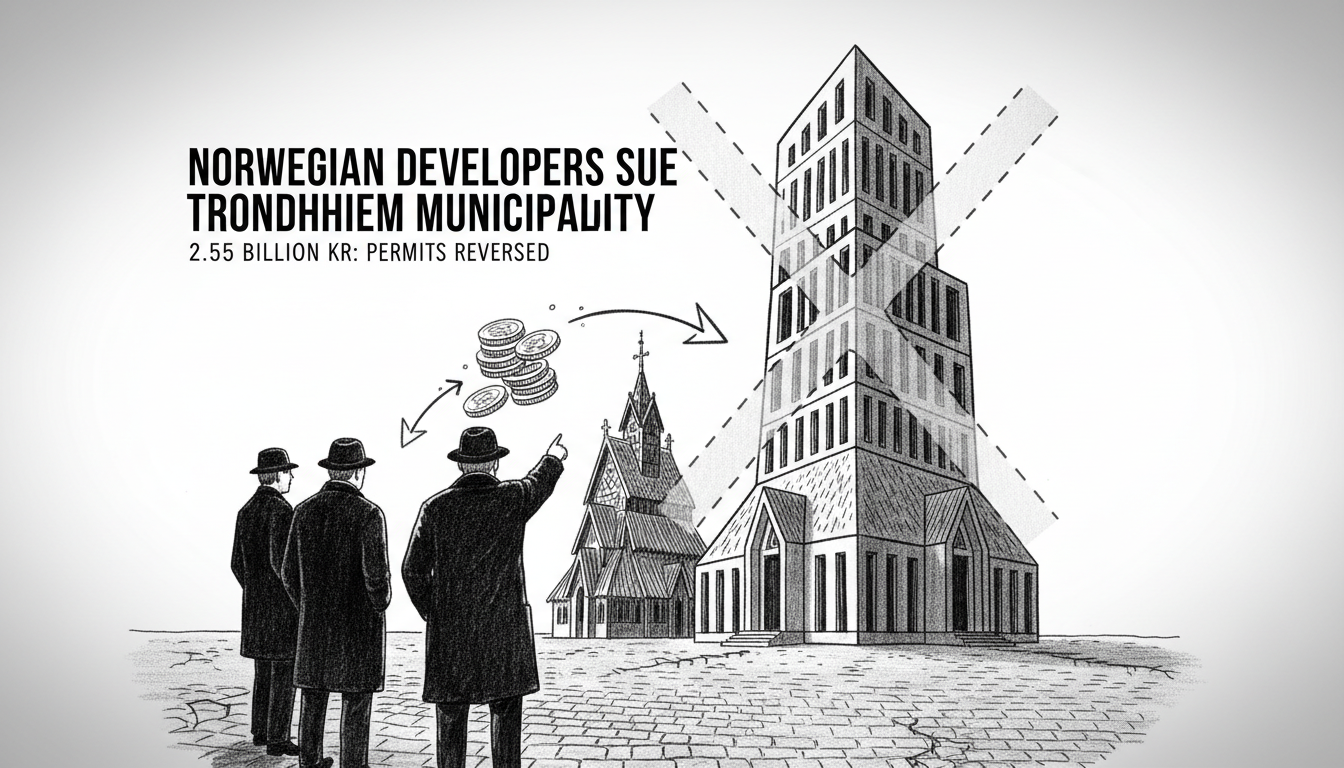Three property development companies have filed a massive lawsuit against Trondheim municipality, demanding 2.55 billion Norwegian kroner in compensation after politicians reversed earlier decisions allowing residential construction. The case highlights the tension between municipal planning flexibility and developer expectations in Norway's property market.
Overvik Eiendom AS, Overvik Lokalsenter AS, and Blekkan Utvikling AS claim they invested heavily based on political decisions from 2019 that designated the Overvik area for housing development. The companies purchased land, developed infrastructure plans, and began construction in northern Overvik. However, politicians unanimously reversed course two years later, protecting southern Overvik for agricultural and recreational use instead.
Anders Flaatin Wilhelmsen, representing the developers, called the reversal a pure political battle with no new factual basis for change. The companies argue that while politicians have the democratic right to change their minds, such dramatic policy shifts create legitimate compensation claims when businesses have made substantial investments based on previous decisions.
Trondheim municipality completely rejects the claims. Municipal attorney Lars Marius Heggberget stated that land use policy is inherently dynamic and subject to change. He emphasized that no developer has automatic legal rights to compensation for changed political decisions under Norwegian law. The municipality also questioned some expense claims, including costs for VIP tickets, rafting trips, and seasonal passes that developers included in their compensation demand.
This legal battle reflects broader tensions in Norwegian urban development. Municipalities frequently balance competing interests between housing needs, agricultural preservation, and environmental concerns. The case demonstrates how political consensus can shift dramatically between election cycles, creating uncertainty for long-term development projects.
The timing of land purchases has become a key dispute. The municipality notes that several property acquisitions occurred before the 2019 political decision, suggesting developers assumed risk voluntarily. The companies counter that they acted in good faith based on clear political signals and extensive municipal consultations.
Both sides agree on one fundamental principle. Politicians can and should reconsider decisions as circumstances change. The disagreement centers on whether such reconsideration triggers compensation obligations when private companies have made substantial investments based on previous political commitments.
The case will be heard over seven days at Trondheim District Court, located directly across the street from the municipal building where the contested decisions were made. The outcome could set important precedents for municipal liability in Norway's rapidly evolving urban development landscape.
What makes this case particularly noteworthy is the substantial sum involved and the clear timeline of political reversals. The developers completed housing in northern Overvik even as politicians debated protecting the southern section. This simultaneous progress and protection creates a complex legal scenario that tests the boundaries of municipal responsibility toward private investors.
Norwegian property law generally favors municipal planning flexibility, but this case pushes against those boundaries by arguing that consistent political signals created legitimate expectations worthy of legal protection. The court's decision will likely influence how both municipalities and developers approach long-term planning negotiations across Norway.

